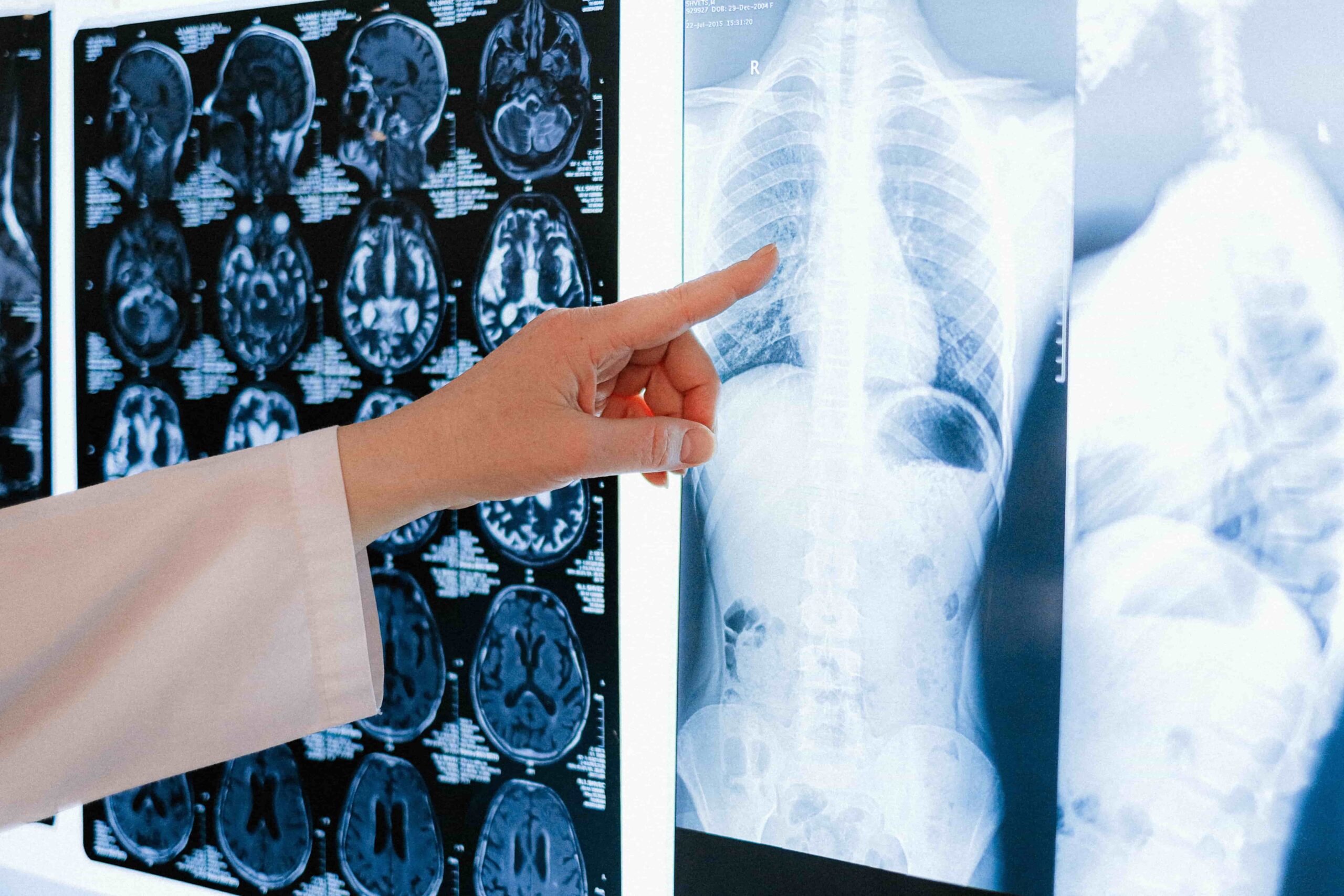Assessing the extent of organ damage is a vital aspect in personal injury cases resulting from motor vehicle accidents.
Independent Medical Examinations (IMEs) play a crucial role in accurately evaluating and determining the severity of such damage.
Our goal is to provide valuable insights into the significance and application of IMEs specifically in cases involving organ damage in motor vehicle accidents.
By understanding the role of IMEs, common types of organ damage associated with these accidents, and the specialized tests utilized during IMEs, readers will develop a comprehensive understanding of how insurance companies, legal firms, and employers rely on IMEs to ensure fair and just assessments.
This article will offer guidelines, procedures, and legal considerations to help readers navigate the IME process effectively for cases involving organ damage.
Understanding Independent Medical Examinations (IMEs)
Definition and Purpose of IMEs
In order to grasp their significance in cases involving organ damage resulting from motor vehicle accidents, it is important to understand the fundamental aspects of Independent Medical Examinations (IMEs). IMEs are medical evaluations conducted by impartial and independent healthcare professionals who are not involved in the injured party’s primary treatment. The purpose of these evaluations is to provide an objective assessment of the individual’s injuries, including organ damage, in order to determine the nature, extent, and cause of the injuries.
Role of IMEs in Personal Injury Cases
IMEs play a crucial role in personal injury cases, particularly in determining the validity and severity of organ damage caused by motor vehicle accidents. They provide an unbiased evaluation to ensure that both the injured party and the responsible party receive a fair and objective assessment of the injuries sustained. By obtaining an independent opinion on the nature and extent of the organ damage, IMEs assist insurance companies, legal firms, and employers in accurately determining appropriate compensation or legal action.
Importance of IMEs in Motor Vehicle Accident Cases
IMEs hold significant importance in motor vehicle accident cases as they help determine the extent of organ damage suffered by the injured party. These evaluations provide a comprehensive and impartial assessment of the injuries, enabling insurance companies, legal firms, and employers to make informed decisions regarding necessary medical treatment, compensation claims, and legal actions. By ensuring that all parties involved have access to unbiased medical opinions based on thorough evaluations, IMEs contribute to the overall resolution of personal injury cases.
Identifying the Qualifications and Expertise of IME Doctors
The accurate assessment of organ damage in motor vehicle accident cases heavily relies on the qualifications and expertise of the IME doctors involved. It is important for insurance companies, legal firms, and employers to carefully select IME doctors who possess specialized knowledge and experience in assessing organ damage resulting from accidents. These medical professionals should have a comprehensive understanding of the specific injuries involved and a strong background in relevant medical specialties. Such considerations ensure that the evaluation process remains accurate, reliable, and unbiased.
Organ Damage in Motor Vehicle Accidents
Motor vehicle accidents can result in severe injuries, with organ damage being one of the most critical and potentially life-threatening consequences. This section will discuss the different aspects of organ damage commonly associated with motor vehicle accidents, including the types of damage, symptoms, complications, and long-term effects. It will also emphasize the importance of accurate diagnosis and the role of Objective Medical Evidence (OME) in determining the extent of organ damage through Independent Medical Examinations (IMEs).
Types of organ damage commonly associated with motor vehicle accidents
In motor vehicle accidents, organ damage can occur due to the impact of the collision or objects penetrating the body. Organs commonly affected include the brain, lungs, heart, liver, spleen, kidneys, and intestines. Each organ has its own unique structure and function, necessitating a comprehensive understanding of the specific types of damage that can occur for accurate diagnosis and treatment.
Symptoms, complications, and long-term effects of organ damage
Organ damage can manifest through a wide range of symptoms, depending on the affected organ and the severity of the injury. Common symptoms include pain, swelling, difficulty breathing, changes in heart rate or blood pressure, and gastrointestinal issues. Complications can arise from organ damage, such as infection, internal bleeding, and organ failure. Additionally, long-term effects may include chronic pain, impaired organ function, and an increased risk of developing other health conditions.
Challenges in diagnosing and assessing organ damage accurately
Accurate diagnosis and assessment of organ damage can be challenging due to factors such as the complexity of the human body, the presence of multiple injuries, and the need for specialized medical expertise. Some organ damage may not immediately display visible symptoms, which can delay diagnosis and impact treatment effectiveness. Diagnostic tests, including imaging scans, blood tests, and biopsies, are crucial in determining the extent of organ damage and guiding medical interventions.
The necessity of Objective Medical Evidence (OME) in organ damage cases
Objective Medical Evidence (OME) plays a critical role in organ damage cases resulting from motor vehicle accidents. OME refers to medical evidence that can be measured or observed without subjective interpretation. Examples include diagnostic imaging, test results, medical records, and expert opinions. OME provides an objective basis for evaluating the severity and extent of organ damage, helping insurance companies, legal firms, and employers make informed decisions regarding compensation, legal actions, or workplace accommodations for individuals who have suffered organ damage in motor vehicle accidents.
Understanding the various aspects of organ damage in motor vehicle accidents, including the types, symptoms, complications, and challenges in accurate diagnosis, highlights the crucial role of Independent Medical Examinations (IMEs) in assessing and determining the extent of such damage. In the next section, we will explore the specific processes involved in IMEs for organ damage cases, including the factors considered, specialized tests and imaging techniques used, and the role of IME doctors.
Independent Medical Examinations (IMEs) for Assessing Organ Damage
Factors Considered during an IME for Organ Damage
During an Independent Medical Examination (IME) for organ damage resulting from motor vehicle accidents, the IME doctor considers several factors to assess the extent and nature of the damage sustained. These factors help provide a comprehensive evaluation of the individual’s condition.
Specialized Tests and Imaging Techniques Used in IMEs
IME doctors utilize specialized tests and imaging techniques to accurately evaluate organ damage. These include blood tests, CT scans, MRIs, and other diagnostic procedures specific to the affected organ. These tests provide objective evidence and assist in determining the most suitable course of treatment.
The Role of IME Doctors in Determining the Extent of Organ Damage
IME doctors play a crucial role in assessing and determining the extent of organ damage. Drawing upon their medical expertise, they analyze medical records, test results, and clinical findings to form an unbiased opinion. By carefully considering all available evidence, IME doctors can provide an objective assessment of the severity of the organ damage sustained by the individual.
Evaluating the Credibility and Reliability of IME Reports
The credibility and reliability of IME reports hold significant importance in personal injury cases involving organ damage. Thoroughness and accuracy in the IME report greatly influence legal proceedings and insurance claims. Therefore, it is crucial to ensure that the IME doctor is qualified, experienced, and unbiased in their assessment. Legal firms and insurance companies meticulously review the report, confirming its adherence to standard protocols and providing a detailed analysis of the organ damage sustained.
By considering these factors and utilizing specialized tests and imaging techniques, IME doctors can provide valuable insights into the extent of organ damage sustained in motor vehicle accidents. Their unbiased assessments and accurate reports contribute to the fair and just resolution of personal injury cases related to organ damage, ensuring that victims receive the necessary support and compensation they deserve.
The Role of Insurance Companies, Legal Firms, and Employers in IMEs for Organ Damage Claims
The Role of Insurance Companies
Insurance companies have a crucial role in assessing and evaluating claims related to organ damage in motor vehicle accidents. As part of the claims process, insurance companies often require the injured party to undergo an Independent Medical Examination (IME). The purpose of the IME is to determine the extent of the organ damage and verify the validity of the claim. Insurance companies rely on these examinations to gather objective medical evidence and make informed decisions regarding liability and compensation.
The Significance of IME Reports
IME reports hold significant weight in personal injury claims involving organ damage. Insurance companies heavily rely on these reports to determine the extent of liability and calculate compensation for the injured party. The findings and recommendations of the IME doctor can significantly impact the outcome of the claim, serving as expert testimony both in court and during settlement negotiations.
The Role of Legal Firms
Legal firms play a crucial role in advocating for clients who have suffered organ damage in motor vehicle accidents. When handling personal injury cases involving organ damage, legal firms may request their clients to undergo an IME to obtain objective medical evidence. IME reports can serve as expert testimony, supporting the client’s claim in court or settlement negotiations. It is the responsibility of legal firms to use these reports effectively to protect their clients’ rights and ensure fair compensation.
The Relevance of IMEs in Workers’ Compensation Cases
In workers’ compensation cases involving motor vehicle accidents and organ damage, IMEs are often necessary to assess the extent of the injuries sustained. Employers and their insurance carriers use IME reports to determine the appropriate compensation for the injured worker. These reports are valuable in legal proceedings, providing objective evidence to support the injured worker’s claim.
Guidelines, Procedures, and Legal Considerations for Independent Medical Examinations (IMEs) in Organ Damage Cases
To ensure the accuracy and fairness of Independent Medical Examinations (IMEs) in cases involving organ damage from motor vehicle accidents, it is crucial to follow specific guidelines, procedures, and legal considerations. This section provides valuable information on the necessary steps and legal aspects involved in conducting IMEs for assessing organ damage.
Legal Requirements for IMEs in Organ Damage Cases
Before conducting an IME for organ damage in motor vehicle accident cases, it is essential to understand and comply with the relevant legal rules and regulations. These requirements may vary depending on the jurisdiction and the specific area of law governing personal injury claims. Legal professionals involved in these cases must have a strong understanding of the applicable laws to ensure that the IMEs are valid and admissible in court.
Compliance Requirements for Organ Damage IMEs
Conducting an IME for organ damage necessitates strict compliance with certain requirements to ensure credibility and fairness. These requirements typically include obtaining the injured party’s consent, complying with confidentiality and privacy protocols, and following standardized protocols for conducting the examination. Adhering to these requirements is crucial to maintain the accuracy and validity of the IME findings.
Ensuring Fairness and Unbiased Assessments during IMEs
To uphold the integrity of IMEs for organ damage in motor vehicle accidents, it is essential to ensure that assessments are conducted in a fair and unbiased manner. The selection of IME doctors should be based on their qualifications, expertise, and independence from any involved parties. Strict protocols and guidelines should be in place to prevent conflicts of interest and maintain impartiality throughout the examination process.
Additionally, the presence of an objective third-party observer is recommended to ensure transparency and fairness. This observer can help monitor the examination process, preventing any attempts to influence the results in favor of a particular party.
Disputing or Challenging Findings from an IME
In cases where the findings of an IME regarding organ damage in a motor vehicle accident are disputed or challenged, it is important to understand the steps and procedures involved in addressing these concerns. Legal professionals should have knowledge of the available mechanisms for challenging an IME’s findings, such as cross-examination, independent expert opinions, or presenting contradictory medical evidence. Understanding these processes can help protect the rights of the injured party and ensure a fair resolution of their claim.
Conclusion
Independent medical examinations (IMEs) play a vital role in evaluating and determining the severity of organ damage in personal injury cases resulting from motor vehicle accidents.
This article has provided valuable insights into the importance and practical application of IMEs for organ damage, highlighting the involvement of insurance companies, legal firms, and employers in utilizing these examinations.
It has also addressed the challenges in accurately diagnosing organ damage and emphasized the need for unbiased medical evidence.
By familiarizing themselves with the guidelines, procedures, and legal considerations surrounding IMEs, individuals involved in such cases can navigate the process more efficiently and ensure a fair and equitable resolution for the victims.
Further Considerations
1. Accurate Diagnosis: One of the unique challenges in conducting IMEs for organ damage in motor vehicle accidents is the need for accurate diagnosis. Organ damage can vary in severity and may not always be readily apparent. This requires thorough medical assessments and specialized imaging techniques to accurately identify and quantify the extent of organ damage.
2. Determining Causation: Another challenge is determining the causation of organ damage in motor vehicle accidents. It can sometimes be difficult to establish a direct link between the accident and the resulting organ damage, especially if there are pre-existing medical conditions or other confounding factors involved. This requires careful examination of medical records and expert opinions to determine the causation.
3. Assessing Long-Term Effects: Organ damage caused by motor vehicle accidents can have long-term effects on an individual’s health and well-being. Assessing and quantifying these long-term effects can pose a unique challenge, as it may require monitoring the individual over an extended period and considering factors such as pain, limitations in daily activities, and potential future medical complications.
4. Expertise and Specialization: Conducting IMEs for organ damage in motor vehicle accidents requires medical professionals with expertise and specialization in the specific organ or system affected. It can be challenging to find qualified experts who have the necessary knowledge and experience to accurately assess and provide an unbiased opinion on the extent of organ damage.
5. Legal Considerations: When conducting IMEs for organ damage in motor vehicle accidents, there are legal considerations that add complexity to the process. This includes adherence to legal guidelines and procedures, ensuring the privacy and confidentiality of medical information, and presenting the findings in a manner that is admissible and persuasive in a legal setting.
FAQs About Independent Medical Examinations for Organ Damage in Motor Vehicle Accidents
What recourse do I have if I disagree with the findings of an Independent Medical Examination?
A: If you disagree with the IME’s findings, you can request a second opinion from another qualified medical professional. You may also have the option to dispute or challenge the findings through the appropriate legal channels.
Are IMEs only conducted by doctors selected by insurance companies?
A: No, while insurance companies commonly arrange and pay for IMEs, the selection of the doctor is often a collaborative process involving both parties. In some cases, an impartial third-party organization may facilitate the selection of the IME doctor.
Can I bring my own medical records or reports to the IME appointment?
A: Yes, it is advisable to bring any relevant medical records or reports to provide a comprehensive overview of your condition. This can help the IME doctor make a more accurate assessment of your organ damage.
How long does an Independent Medical Examination for organ damage typically take?
A: The duration of an IME for organ damage can vary depending on the complexity of the case and the specific tests required. It can range from a few hours to a full day or longer, depending on the circumstances.
Will the IME doctor provide treatment recommendations for my organ damage?
A: IME doctors generally do not provide treatment recommendations or act as your primary treating physician. Their role is to assess the extent of the organ damage and provide an impartial evaluation of your condition.
Can the IME report be used as evidence in court?
A: Yes, IME reports can be used as evidence in court proceedings. However, it is important to note that the admissibility and weight given to the report may vary based on jurisdiction and the specific rules of evidence in your region.
What happens if the IME doctor determines that there is no significant organ damage?
A: If the IME doctor determines that there is no significant organ damage, it may have implications for your personal injury claim. It is important to consult with your legal representative to understand the potential impact and explore any available options.
Can I request a copy of the IME report for my own records?
A: In most cases, you have the right to request a copy of the IME report for your personal records. However, this may vary based on local regulations and the policies of the party who arranged the examination.
Can I have my own doctor present during the IME appointment?
A: The presence of your own doctor during the IME appointment is generally not allowed. IMEs are typically conducted by an independent medical professional chosen by the party arranging the examination to ensure an unbiased assessment.
Can I refuse to undergo an Independent Medical Examination for organ damage?
A: The requirement to undergo an IME typically depends on the specific circumstances, jurisdiction, and the terms of your insurance policy or legal agreement. Failing to comply with a reasonable request for an IME may have consequences for your claim or case. It is advisable to consult with your legal representative about your rights and obligations regarding IMEs.
Glossary of Terms Used in the Article
1. Independent Medical Examinations (IMEs): Evaluations conducted by impartial medical experts to assess and determine the extent of injuries or damages in personal injury cases.
2. Organ Damage: Harm or injury sustained to one or more organs due to a motor vehicle accident.
3. Personal Injury Cases: Legal disputes that arise from accidents or incidents resulting in physical or psychological harm to an individual.
4. Motor Vehicle Accidents: Incidents involving cars, trucks, motorcycles, or other vehicles that cause damage, injury, or death.
5. Insurance Companies: Companies that provide coverage and financial protection against potential losses or damages in exchange for regular premium payments.
6. Legal Firms: Law firms or organizations specializing in legal services, including representation in personal injury cases.
7. Employers: Individuals or entities that hire and engage employees.
8. Qualified Medical Experts: Medical professionals possessing the necessary qualifications, experience, and expertise to conduct Independent Medical Examinations.
9. Objective Medical Evidence (OME): Concrete medical evidence, such as test results or imaging studies, that objectively supports a diagnosis or assessment.
10. Symptoms: Subjective experiences or indications of a medical condition reported by the patient.
11. Complications: Additional health issues or difficulties arising from an existing medical condition.
12. Long-term Effects: Lasting consequences or impacts on an individual’s health or well-being resulting from an injury or damage.
13. Diagnostic Challenges: Difficulties or obstacles encountered in accurately diagnosing a medical condition or injury.
14. Specialized Tests: Specific medical examinations or procedures designed to assess and diagnose particular conditions or injuries.
15. Imaging Techniques: Medical imaging methods, such as X-rays, MRI scans, or ultrasounds, used to visualize internal structures and assess organ damage.
16. Credibility: The quality of being trustworthy or believable.
17. Reliability: The consistency and dependability of a report, test, or assessment.
18. Workers’ Compensation: A system of insurance that provides benefits to employees who sustain work-related injuries or illnesses.
19. Legal Rules and Regulations: Laws, statutes, and guidelines governing the use and application of Independent Medical Examinations.
20. Compliance Requirements: Mandatory standards or criteria that must be met in order to fulfill legal and ethical obligations during an Independent Medical Examination.






